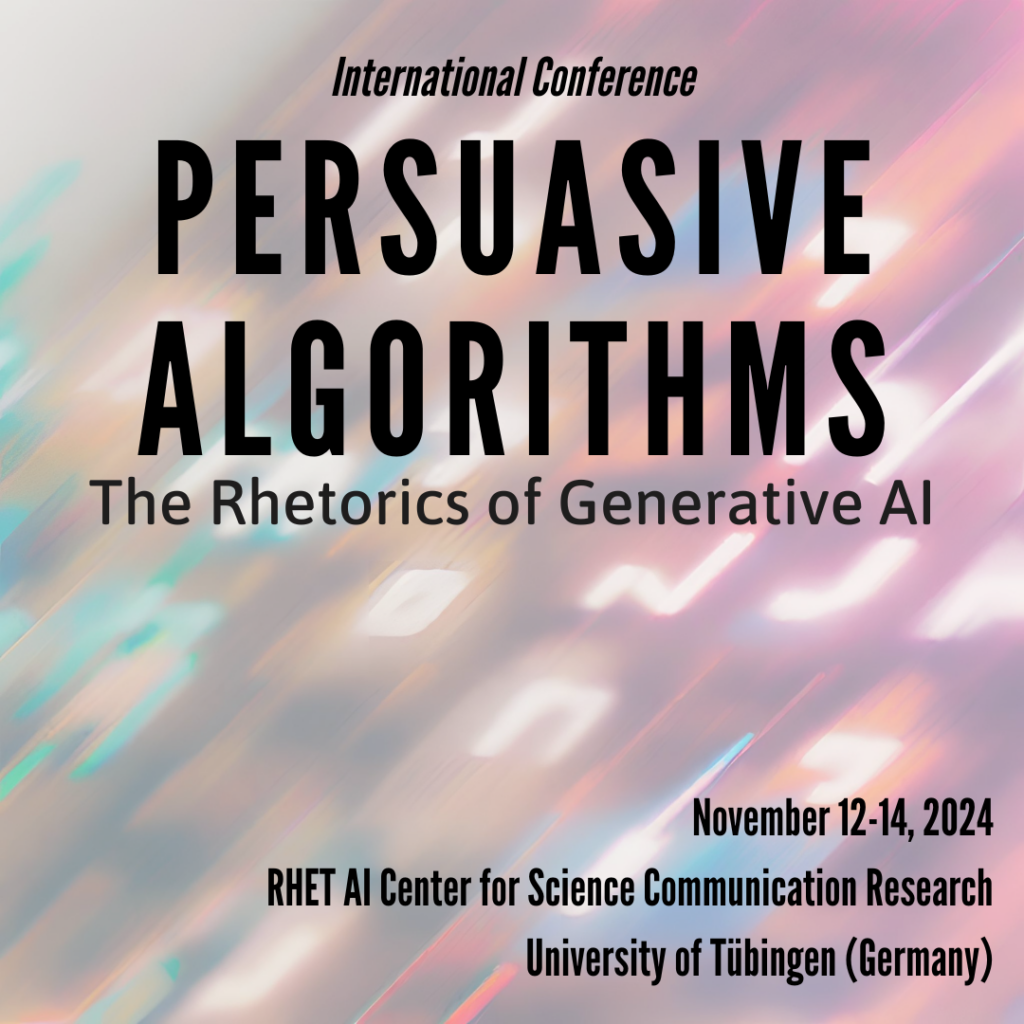The Deadline for conference registration is Tuesday, November 5th!
In cooperation with the Max-Planck-Institute, the RHET AI Center is organising an interdisciplinary symposium focused on the foundations, functions, and communicative implications of generative AI. The academic discussion will be accompanied by a public Science Notes event, which is part of the University of Tübingen's Science and Innovation Days, as well as by the university's Cognitive Science Center.
At the international conference Persuasive Algorithms, we will bring together researchers from various disciplines including machine learning, cognitive science, philosophy of language, rhetoric, linguistics, and media studies, alongside experts in journalism, culture, and science communication for a series of exciting lectures from across these fields. With AI constantly evolving, we aim to spark dialogue around AI and its effects through an experimental format called "Problem Pitches", designed to reveal fresh perspectives, viewpoints, and positions. We will discuss whether and how communication is being transformed by generative AI.
The conference will open with a keynote by Casey Mock from the Center for Humane Technology. He explores the question what happens if we replace forms and centuries-old corporate and government bureaucracies with black-box machines that may not be persuadable or allow appeals to a higher authority.
The panel "Is AI Inevitable?" will conclude the first day of the conference. Eva Wolfangel will explore the profound impact of AI on society, from education and fairness to public perception and algorithmic bias and discuss with Annette Leßmöllmann, Esther Greussing and Moritz Hardt if and how AI's path can be shaped or reversed.
Bernhard Schölkopf rounds out the second day of the conference with a keynote on Borges and AI. In his keynote, he brings in a new perspective on generative AI by advocating understanding LLMs and their connection to AI through the imagery of Jorge Luis Borges, a master of 20th century literature, forerunner of magical realism, and precursor to postmodern literature.
Mike Schäfer from the University of Zurich will start us on the last day of the conference with a keynote on the topic of Science Communication in the Age of AI, in which he explores both the practice and research of science communication in the age of AI, outlining opportunities and challenges, emerging findings, and key research directions for the future.
Find out more about the upcoming topics, the symposium's goals, and the core themes here. You can also register for participation via the link. The conference language is English.





